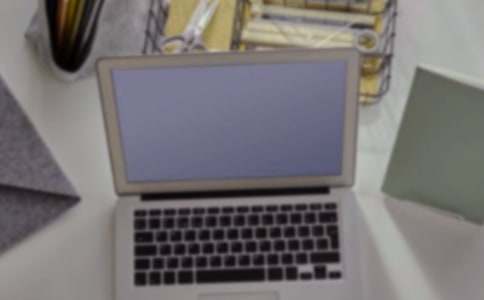浅谈EverydayEtiquette办公室的日常礼仪
Telephone 电 话

As your company's representative, your phone manners should be impeccable. Too many workers who are abrupt on the phone rationalize their behavior by saying it's okay or even expected.
since they're at work, but this isn't true. You are putting across your company's image and should work just as hard at it on the phone as you would in person.
作为公司的代表,你打电话的举止应该是无可挑剔的,Everyday Etiquette 办公室的日常礼仪。许多在打电话时举止粗鲁的工作人员给自己的行为找理由,说那是可以接受的,甚至理应如此,因为他们正在工作。但这是说不通的。你实际上是在为公司树立形象,因此应该就像面见对方一样尽可能打好电话。
There are several accepted ways to answer a telephone at work. You can simply say “ Hello” or you can say your name, as in “ June Johnson speaking.” You don't need to say the company's name if a receptionist or a secretary has already done so. Try to speak in a pleasant, unrushed voice. If you are rushed and can't talk, it's better to say this and make plans to call back later. Don't rustle papers or work while you're speaking on the phone.If you're really too distracted to speak, then reschedule the call.
接工作电话有几种广为接受的方式,商务英语《Everyday Etiquette 办公室的日常礼仪》。你可以只说"你好"或说出你的姓名,如"我是琼·约翰逊。"如果接线员或秘书已经说出了公司的名字,你便不必再说。通话时尽量声音悦耳,不急不躁。如果你手头正忙无法说话,最好实话实说,告诉对方一会儿再打过去。通话时不要让纸张瑟瑟作响,也不要边说边工作。如果你实在无法集中精神通话,那就安排另外通话的时间。
It's okay and sometimes even necessary to screen your calls. But there's a right and a wrong way to do this. First train your secretary to do it politely. It's better to ask “ May I know who's calling?” than “ Who is this?” or even “ Who's calling?” Second, don't instruct your secretary to say you are out when you are in. It's acceptable to be in but too busy to talk at the moment and it's always better to be honest. Callers sense the difference, and besides, it may not look good if you're always out.
有选择地接电话是可以的,有时甚至是必要的。但是如何做则有正误之分。首先训练你的秘书要有礼貌。最好问"我能问是哪位打来的吗?",而不是"谁呀?",更不是"谁在打电话?"。第二,不要教你的秘书在你在的时候说不在。说工作太忙无暇通话是可以接受的--以诚相待永远是上策。打电话的人能听出不同,况且,如果你总不在也不太好。
It's rude not to return telephone calls regardless of whom they are from. You might be ignoring a potential customer. Many peeople today don't bother to return phone calls, and if you work for someone else,it's highly unlikely that such behavior is acceptable. When you do return calls, try to place them yourself. If you must have your secretary make the call, then get on the line immediately. It's not polite to keep someone waiting when you've placed the call.
不回电话是无礼的--不管电话来自何人。你或许会错过一个可能成为客户的人。当今许多人不屑回电话,但如果你身为别人的雇员,如此行为恐怕难以接受。当你能够回电话时,尽量自己做。如果你必须先让你的秘书代劳,那么应尽快接过电话。如果电话是你打的.,让对方久等是不礼貌的。
Handling Mail
处理信件
Good manners also dictate that you handle your mail promptly and courteously. Unless mail is obviously mass-produced, it should be deemed worthy of a reply. Most bosses don't like discovering that their employees are unresponsive to business calls and letters.
得体的行为举止也体现在你能及时有礼貌地处理信件。除非是那些大量散发的邮件,每一邮件都值得予以回复。许多老板不愿看到他们的雇员对商务电话和信函迟迟不予答复。
Faxes and E-Mail
传真和电子邮件
The arrival of fax machines and desktop computers in most offices has also given rise to a new etiquette regarding their use. Never assume that either a fax or e-mail is private. And with that in mind, never send any communication via either method that you wouldn't like to have your boss, or even your entire office, read. Most fax machines are located in public places, so anyone who passes by can read them, and some businesses routinely screen their employees' e-mail. (That's not necessarily polite, but it's easier to keep e-mail impersonal than to tell the boss she can't read it.)
传真机和桌面电脑进入大多数办公室以后也产生了一种新的有关使用传真机和电脑的礼仪。决不要认为传真或电子邮件是私人的。清楚这点就不要使用它们发任何你不愿让老板甚至是整个办公室都能读到的信件。大部分传真机放在公共地点,所以每位经过的同事都可以看,而有些公司例行公事地检查雇员的电子邮件。(那不见得是礼貌之举,但让电子邮件成为非私人邮件要比告诉老板请勿阅读更容易些。)
【浅谈EverydayEtiquette办公室的日常礼仪】相关文章:
浅谈日常交际礼仪知识06-11
浅谈宝宝日常社交礼仪03-27
浅谈英国留学的日常礼仪06-11
办公室日常的接待礼仪04-11
浅谈办公室用餐的礼仪03-28
浅谈办公室电话礼仪03-27
浅谈办公室位次礼仪06-12
办公室的日常礼仪规范06-10
办公室日常接待礼仪集锦08-03